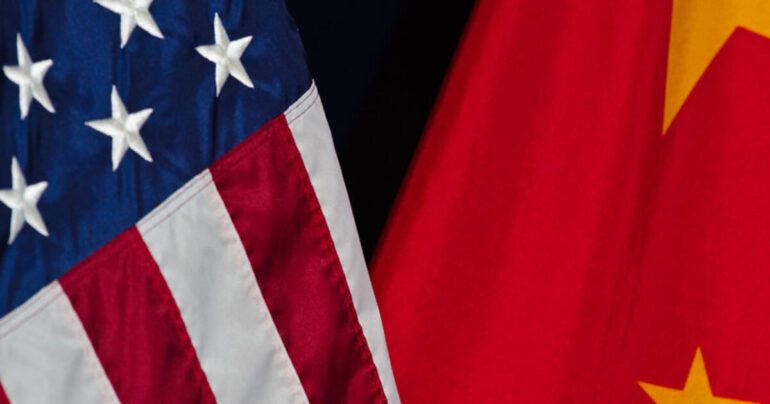TL;DR:
- 45 countries join a US-led initiative for responsible military AI use.
- Key AI development nations endorse the initiative; China is notably absent.
- Initiative consists of ten measures to establish an international framework for responsible AI use.
- Presidents Biden and Xi will announce a ban on AI in autonomous weaponry.
- APEC summit in San Francisco provides an opportunity for AI collaboration.
- China, though absent from the US-led initiative, signed a declaration with 28 countries on AI risk management.
- The UK hosts an AI safety summit with China’s participation, highlighting the top three AI nations’ importance.
Main AI News:
In a significant development for the global AI landscape, 45 countries have united under a US-led initiative to establish responsible guidelines for the military application of artificial intelligence (AI). This initiative, which aims to address the potential risks associated with cutting-edge technology, has garnered support from key American allies in Asia and Europe, including prominent players in AI development such as Australia, Britain, Canada, Finland, France, Germany, Japan, the Netherlands, Singapore, and South Korea. Notably absent from this declaration is China, a major player in the AI arena.
The Political Declaration on Responsible Military Use of Artificial Intelligence and Autonomy, introduced by the United States in February, comprises ten pivotal measures. These measures constitute a foundational step toward creating an international framework that promotes responsible AI usage by states. They encompass activities like sharing best practices, facilitating expert-level exchanges, and undertaking capacity-building initiatives, all geared towards ensuring the responsible military use of AI technologies.
This development coincides with the Asia-Pacific Economic Cooperation (APEC) summit being hosted by the United States in San Francisco, where AI holds a prominent position on the agenda. During this summit, Presidents Joe Biden and Xi Jinping are expected to announce a joint commitment to banning the use of AI in autonomous weaponry, such as drones, and in the control and deployment of nuclear warheads.
Matt Murray, the senior American official for APEC, emphasized the increasing interest in collaborative efforts in the region to advance discussions related to AI. While significant progress is being made, broader agreements or understandings regarding AI are not yet ready for announcement within the APEC framework.
Despite China’s absence from the Washington-led initiative, earlier this month, Beijing, along with 28 other countries, including the United States and the European Union, agreed to sign a declaration aimed at managing the potentially catastrophic risks stemming from AI. Michelle Donelan, Britain’s Secretary of State for Science, Innovation, and Technology, lauded China’s participation in the UK-hosted AI safety summit, labeling it a “big success” and underlining its vital importance for the shared global agenda.
Addressing the global landscape of AI, Donelan pointed out that the United States, the United Kingdom, and China now occupy the top three positions in the world in terms of AI capabilities, a fact with far-reaching implications.
Despite the competition between the United States and China in the AI realm, Beijing’s decision to abstain from endorsing the US-led declaration is not surprising. Sam Bresnick of Georgetown University’s Centre for Security and Emerging Technology suggested that while Beijing may support many of the declaration’s proposals, it remains cautious about joining a US-led effort concerning responsible military AI. China appears more inclined to engage in multilateral discussions concerning responsible AI development and usage, steering clear of binding agreements that could potentially restrict its ability to develop AI-enabled military systems.
Tong Zhao of the Carnegie Endowment for International Peace echoed this assessment, highlighting China’s strategy of carefully observing the evolving AI landscape while maintaining flexibility in its choices. Engaging in broader international discussions about AI regulation not only provides China with valuable insights into new ideas and AI management progress but also enhances its image as a responsible global power. Such involvement positions China to play a crucial role in shaping future AI governance rules and norms, ensuring it doesn’t miss significant opportunities to influence the direction of AI on the global stage.
Conclusion:
The global support for the US-led initiative on responsible military AI use signifies a significant step in shaping the future of AI governance. Key players in AI development are joining forces, while China opts for a more cautious approach, engaging in multilateral discussions but avoiding binding agreements. This dynamic highlights the evolving landscape of AI and underscores the importance of global collaboration in setting AI governance rules and norms, with implications for the broader AI market.

